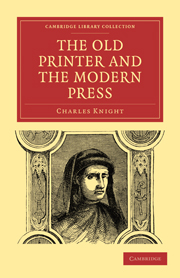Summary
In a condition of society which may be characterised as that of a very imperfect civilisation—when communication is difficult, and in some cases impossible; when the influence of the capital upon the provinces is very partial and uncertain; when knowledge is for the most part confined to the learned professions—we must regard the rich upper classes precisely in the same relation to popular literature as we now regard the poor lower classes. We must view them as essentially uncritical and unrefined, swallowing the coarsest intellectual food with greediness, looking chiefly to excitement and amusement in books, and not very willingly elevating themselves to mental improvement as a great duty. When Ben Jonson speaks of the “prerogative the vulgar have to lose their judgments, and like that which is naught”—when he derides the taste of “the beast the multitude”—he also takes care to tell us that his description of those who “think rude things greater than polished,” not only applied to “the sordid multitude, but to the neater sort of our gallants: for all are the multitude; only they differ in clothes, not in judgment or understanding.” About the time when Jonson wrote thus—more calmly than when he denounced “the loathed stage, and the more loathsome age”—Burton was exhibiting the intellectual condition of the gentry in his ‘Anatomy of Melancholy:’—“I am not ignorant how barbarously and basely for the most part our ruder gentry esteem of libraries and books; how they neglect and contemn so great a treasure, so inestimable a benefit, as Æsop's cock did the jewel be found in the dunghill; and all through error, ignorance, and want of education.”
- Type
- Chapter
- Information
- The Old Printer and the Modern Press , pp. 197 - 217Publisher: Cambridge University PressPrint publication year: 2010First published in: 1854

